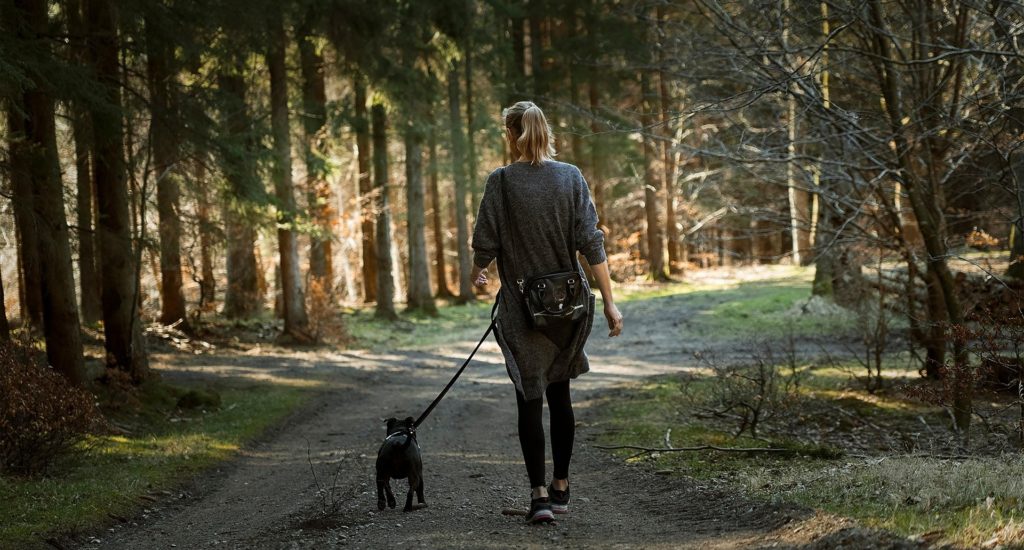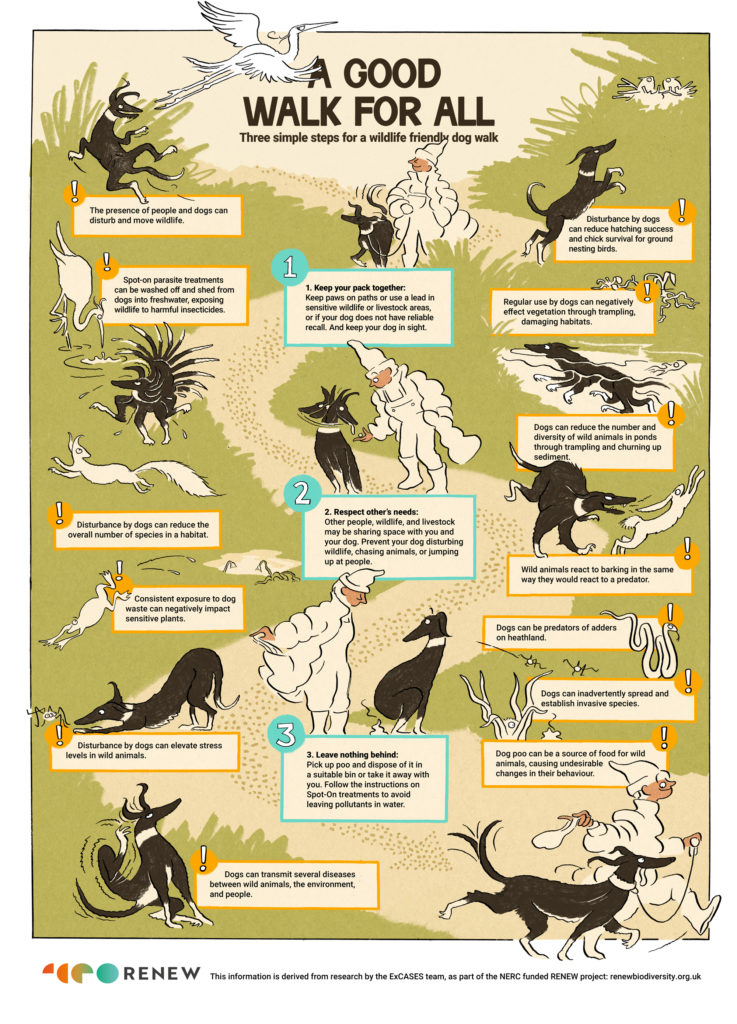‘Traffic light’ dog-walking zones can benefit people, dogs & environment

“Traffic light” dog-walking zones in the UK can benefit people, dogs and the environment, according to a new report.
An estimated 12.5 million dogs live in the UK – up by about 30% since before the Covid pandemic.
The RENEW project held workshops with conservationists and professionals working with dog owners to review evidence, and came up with recommendations to help reduce potential impacts of dog walking on the environment.
These include a “traffic light” system – green, amber or red pawprints to show where dogs can roam off leads, where paws should be kept on paths, and where dog walking should be prevented to protect sensitive wildlife or habitats.
“Dogs are an important part of many people’s lives, and the vast majority of dog owners don’t set out with an intention to disturb wildlife,” said David Bavin, lead author on the report.
“The aim of this research is to find a balance between providing welcoming spaces for people and dogs and minimising any negative impacts on wildlife and the environment.”
Having a national standard – with clear signs like the traffic light pawprints – would make it easier for everyone to know what’s expected, the researchers say.
“This traffic light system is a simple way of helping dog walkers understand the landscape they’re in, and opens up great conversations about how we share space,” said Hannah Molloy, from the Parliamentary Group for Dog Welfare.
The report – by RENEW’s ExCASES research group – finds:
- Balancing the needs of people, dogs and wildlife is a top priority for conservationists.
- Evidence that dog walking can have some negative impacts – including displacement of wildlife, increased stress levels in wild animals, and pollution of freshwater habitats by spot-on flea and tick treatments.
- Dog numbers are higher in urban and coastal areas, especially in the south of England, creating greater pressure on sensitive habitats in these places.
The researchers advocate a “One Health” approach – meaning one that aims to balance the health and wellbeing of people, animals and ecosystems.
They say we should strive for no “net loss” of access for dog walkers. Instead, restrictions should be evidence based, only used where necessary, and – where possible – alternative sites should be created where dogs can be walked without restrictions
“Some of this is being done really well already,” Bavin said. “Projects such as Dorset Dogs are working very effectively with dog owners, while Holkham Estate, in Norfolk, employed a zoning approach following consultation with local communities.”
Stephen Jenkinson, an independent specialist on dogs in the outdoors, said: “It’s so helpful this report confirms how walkers with dogs will avoid conflict with wildlife if given clear, credible and relevant choices about where to go and what to do. While such vital information is lacking in most places, the report usefully highlights the good practice that already exists.”
The team argue that expanding public access to UK land – which is largely privately owned and inaccessible – would ease pressure on current pinch points such as nature reserves
“We hope to encourage a positive national conversation about dog walking, in collaboration with people and organisations working in both the conservation and canine sectors,” said report co-author Dr Sarah Crowley, from the University of Exeter.
Bavin added: “We all rely on the health of our environment, which is why our approach seeks to support the health, welfare and resilience of people, dogs, and nature.”
The ExCASES report includes an accessible overview of current evidence of dog walking impacts on biodiversity, and best practice recommendations for how to fairly and sustainably manage these.
The RENEW project (Renewing biodiversity through a people in nature approach) is a collaboration between the University of Exeter and the National Trust, funded by the Natural Environment Research Council (NERC).
The report is entitled: “Paws for thought: Towards environmentally friendly dog walking in the UK.”




